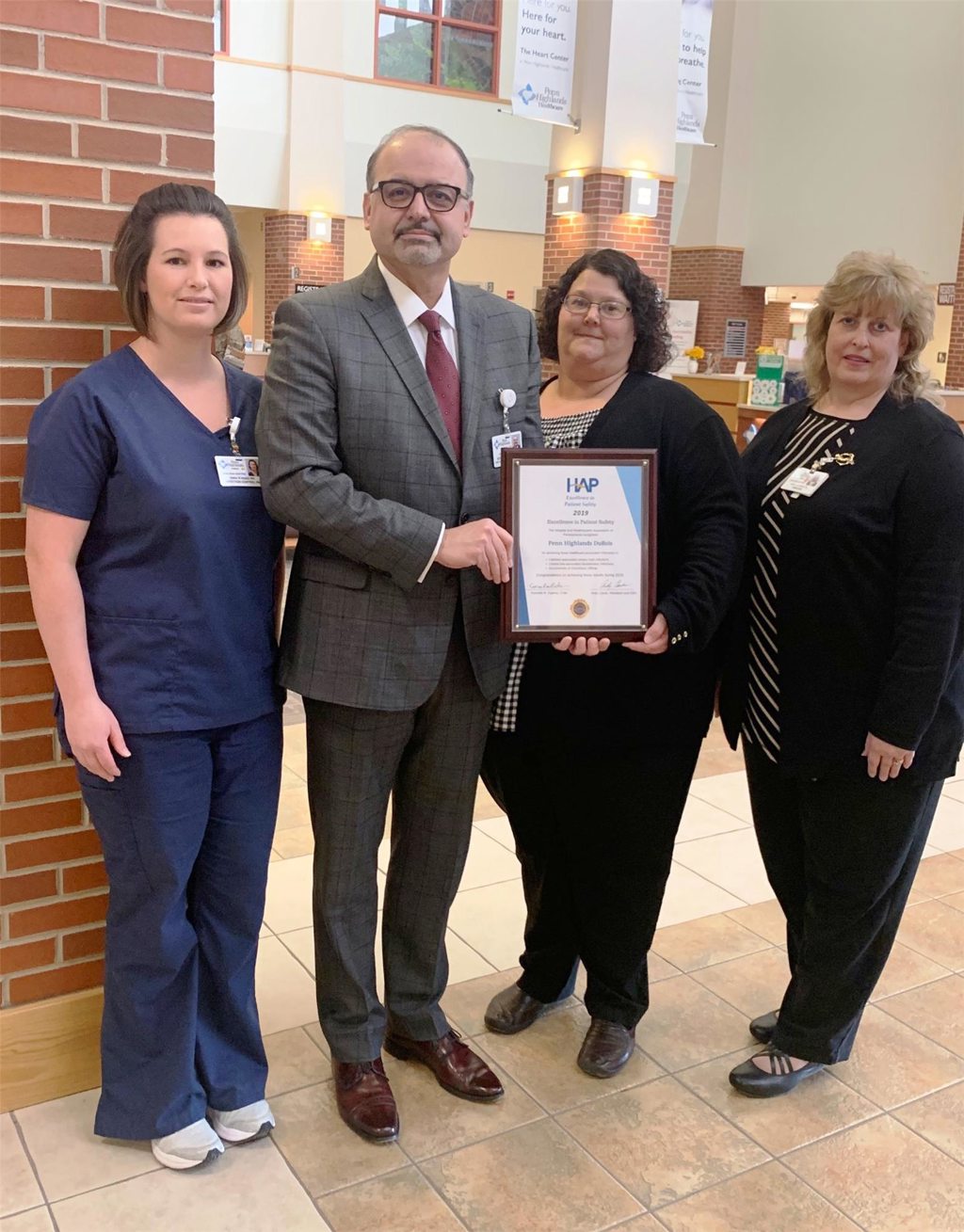
PH DuBois Recognized By HAP For Excellence in Patient Safety
The Hospital and Healthsystem Association of Pennsylvania (HAP) has recognized Penn Highlands DuBois as one of the first honorees of its Excellence in Patient Safety Recognition program.
This year, 24 hospitals are being acknowledged for this achievement, and the recognition program is open to all Pennsylvania hospitals.
HAP is a statewide membership services organization that advocates for nearly 240 Pennsylvania acute and specialty care, primary care, subacute care, long-term care, home health, and hospice providers, as well as the patients and communities they serve.
The HAP Excellence in Patient Safety Recognition Program was launched in 2018 to recognize Pennsylvania’s top-performing hospitals that have demonstrated low rates of health care-associated infections.
Using data from the Centers for Disease Control and Prevention’s National Healthcare Safety Network, this program identifies and recognizes those member hospitals that perform better than the mean standardized infection ratio across Pennsylvania in three key measures:
- Central line-associated bloodstream infection, or CLABSI,
- Catheter-associated urinary tract infection, or CAUTI,
- Clostridium difficile infection, or CDI.
“HAP’s Excellence in Patient Safety Recognition is another testament to the Pennsylvania hospital community’s commitment to continuously improving upon the care they provide,” said Andy Carter, HAP President and CEO. “The honorees embody our mission to make our excellent care even better, and we congratulate the hospitals recognized in this year’s program.”
How did PH DuBois achieve this recognition? “To keep these infections at bay, our staff practices excellent hand hygiene,” Sue Stiner, MSN, RN, CIC, Inpatient Dialysis, and Infection Prevention and Control director at Penn Highlands DuBois, said. “We follow evidenced-based nursing practice bundles to decrease the incidences of hospital-acquired infections.”
“Also, we try to only use central lines and Foley catheters when absolutely necessary. If a patient has the need for either, we evaluate the need to keep or remove the device daily. Evidence shows that the sooner a central line or Foley catheter is removed, the less likely a patient will develop an infection,” Stiner said.
“It is unfortunate, but it is a challenge that most hospitals and systems struggle with hospital acquired infections. When patients come to us, their immunity is low, and they are susceptible for developing infections,” Dr. Istikram Qaderi, Chief Quality and Transformation Officer for Penn Highlands Healthcare, said.
“For our team at Penn Highlands to obtain this prestigious recognition from HAP showcases the great work we are doing and we are sustaining a high performance for an extended a period time. I am proud of our staff for providing such safe and high quality care to our patients,” he said.
